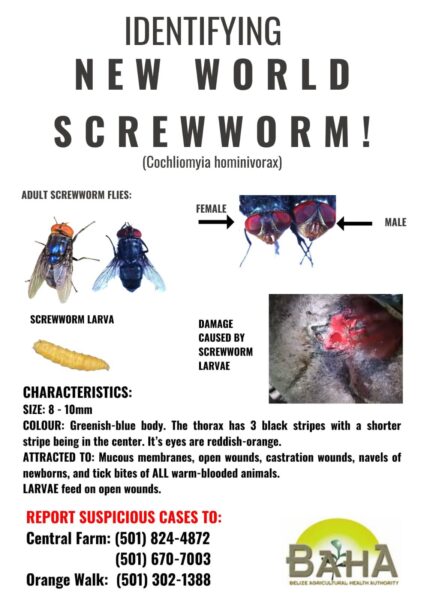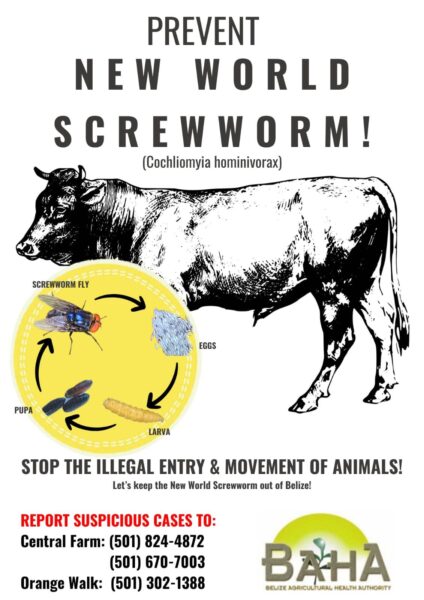The Ministry of Agriculture, Food Security and Enterprise, through the Belize Agricultural Health Authority (BAHA), continues to closely monitor the outbreak of New World screwworms in Central America. Scientifically named Cochliomyia hominivorax, countries like Panama and Costa Rica continue to be affected by screwworm outbreaks. While there are yet-to-be-reported cases in Belize, authorities remain on high alert as a possible outbreak can adversely affect the livestock, small stock, and avian industries.
According to the BAHA, the New World screwworm is a parasite that can affect all mammals, including humans. Female flies of the Calliphoridae family and Chrysomyinae subfamily are attracted to open wounds such as castration wounds, navels of newborns, exposed mucous membranes, and tick bites where they lay eggs. After 12 – 24 hours, the larvae emerge and feed on the skin and underlying tissue of the host. This causes a condition known as a wound or traumatic myiasis, which can be fatal. A screwworm can be identified by its greenish-blue body, three black stripes in the thorax, a shorter stripe in the center, and reddish-orange eyes. They measure around eight to ten millimeters.
Belize became free from the New World screwworm in 1992 and has maintained this status since then. “The possibility of re-introducing the parasite into Belize threatens the livestock, small stock, avian industries, wildlife, and humans. To ensure that the country remains free from the New World screwworm, BAHA has recategorized the high risk of importation of animals from the affected countries and has heightened importation conditions to include mandatory veterinary inspection at ports of entry,” explained authorities.
The public is reminded that the illegal importation of animals and animal products remains a threat to the health, safety, food security, and livelihood of all Belizeans. For further information, email the Animal Health Department at Central Farm at [email protected] or call 824-4872, 670-7003, or the Orange Walk branch at 302-1388.

Share
Read more

